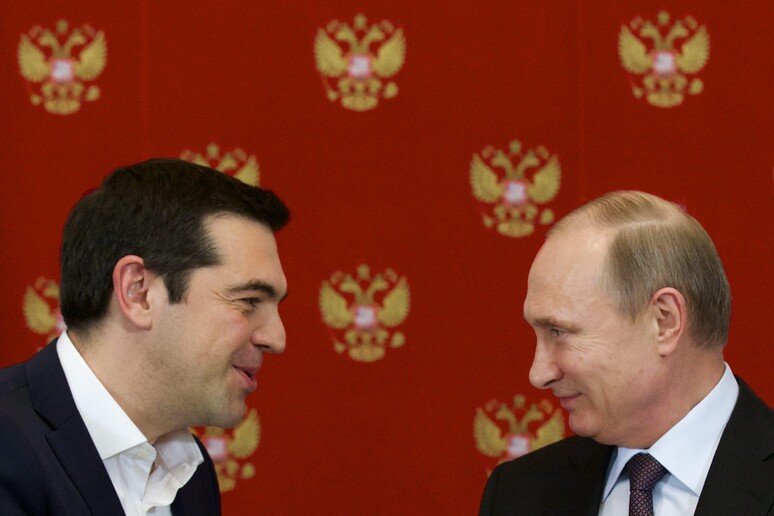The European Central Bank (ECB)
on Friday agree to increase emergency loans to Greek banks for
the second time this week, but by less than requested, according
to some media report.
Although the ECB did not confirm the amount through its
Emergency Liquidity Assistance (ELA) program, the Financial
Times said it was about two billion euros - less than the three
billion requested by Greece's central bank.
The increase was only valid Friday and on Monday, when
crucial summit of European leaders is planned, added the news
paper.
Greek banks have suffered steep withdrawals - about one
billion euros taken out by nervous account holders in Thursday
alone.
In the midst of the crisis, Greek Premier Alexis Tsipras
said Friday that Europe must make a "courageous choice" in
policy and opt for less focus on austerity.
Amid tense, last-ditch negotiations with Greece's lenders,
including the International Monetary Fund (IMF), the European
Union (EU) and the ECB, Tsipras travelled to Russia.
There, he met with Russian President Vladimir Putin
and in St. Petersburg, told an economic forum that the "center
of world economic development is shifting to other areas," and
away from Europe.
Tsipras added that Europe should not consider itself to be
the naval of the world.
Russia is considering providing financial assistance to
Greece, Deputy Prime Minister Arkadi Dvorkovich told Russia
Today on Friday.
"We will support any decision proposed by Greece and its
European partners. If Greece needs financial assistance, we will
look into the issue".
Russia will be able to consider providing financial
assistance to Athens only if the Greek government asks for it,
said Kremlin spokesman Dmitri Peskov.
Meanwhile, Italian Economy Minister Pier Carlo Padoan said
Friday if Greece ultimately leaves the euro, the shock to
European financial markets would be felt.
But, he added, it would not severely damage Italy because
the national financial situation "is much improved" and investor
confidence more stable.
"I would not worry if there are changes in (bond) yields
because the situation in 2015 is very different from 2012," in
the depths of a financial crisis, said Padoan.
As well, the ECB has created instruments to "counter the
contagion effect" within the financial system, Padoan added.
In Berlin, European Commission President Jean-Claude
Juncker said he did not "understand" Tsipras and could not rule
out a 'Grexit' from the eurozone.
"I've always warned about the fact that that I can't avert
the failure of talks at all costs," he said.
Earlier in the day Tsipras said he was hopeful Athens could
reach a deal with its creditors to avert a default with the help
of eurozone leaders.
"Monday's summit is a positive development on the road to
an agreement," Tsipras said in a statement.
European Council President Donald Tusk called the
extraordinary eurozone summit after a Eurogroup meeting failed
to progress on a deal Thursday amid widespread calls for Athens
to make new proposals.
"There will be a solution based on the respect of EU rules
and democracy, which will allow Greece to return to growth,"
Tsipras said.
IMF Managing Director Christine Lagarde on Thursday urged
Greece to get back to the negotiating table and said Athens
risked defaulting on its debt with the agency at the end of the
month.
"If Greece does not pay the installment it owes us by June
30, it will be in default with respect to the IMF," Lagarde
said, adding there would be "no grace period or possibility of
delay".
Berlin said Friday that it hoped Greece stays in the
eurozone.
"We are sorry that there was no step forward yesterday,
but it's not too late and we hope for an agreement," said
Chancellor Angela Merkel's spokesman Steffen Seibert.
ALL RIGHTS RESERVED © Copyright ANSA











